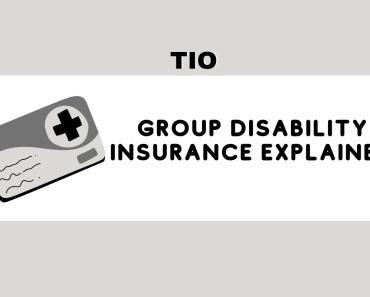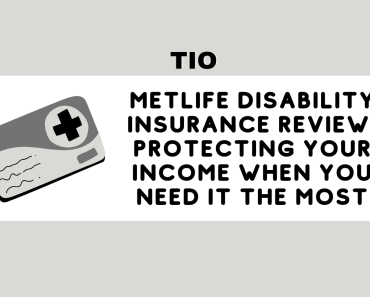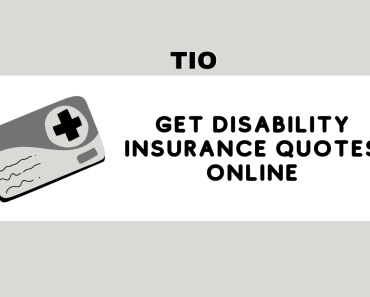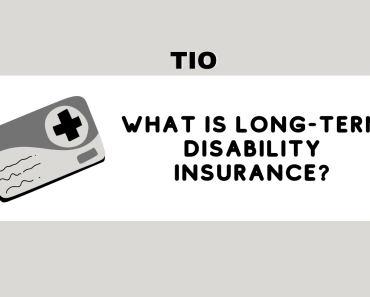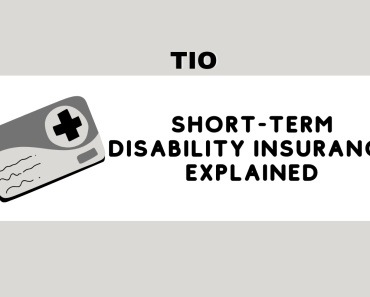Disability insurance is a crucial component of financial planning. It helps protect individuals in case they are unable to work due to a disability. However, there are many myths surrounding disability insurance that prevent people from obtaining coverage or cause them to misunderstand the benefits they may receive. In this article, we will bust some of the most common disability insurance myths and provide accurate information to help you make informed decisions about your coverage.
Table of Contents:
- Introduction
- Myth #1: Social Security Disability Insurance (SSDI) is enough to cover me
- Myth #2: I don’t need disability insurance because I have worker’s compensation
- Myth #3: Disability insurance is only for people with dangerous jobs
- Myth #4: Disability insurance is too expensive
- Myth #5: Disability insurance is unnecessary for stay-at-home parents
- Myth #6: I won’t qualify for disability insurance because of a pre-existing condition
- Myth #7: Disability insurance is only for long-term disabilities
- Myth #8: Disability insurance payouts are taxed as income
- Myth #9: Disability insurance is only for older individuals
- Myth #10: It’s difficult to apply for disability insurance
- Conclusion
- FAQs
Myth #1: Social Security Disability Insurance (SSDI) is enough to cover me
Many people believe that SSDI will provide enough coverage in case they become disabled. However, SSDI benefits are limited, and the application process is often lengthy and difficult. The average monthly benefit in 2021 was $1,277, which may not be enough to cover all of your expenses, especially if you have a family to support. Additionally, SSDI only covers long-term disabilities that last at least 12 months or result in death, so it may not provide any benefits for shorter-term disabilities.
Myth #2: I don’t need disability insurance because I have worker’s compensation
While worker’s compensation provides benefits for work-related injuries or illnesses, it does not cover disabilities that occur outside of work. Additionally, worker’s compensation benefits are often limited, and may not provide enough coverage to support you and your family in case of a disability.
Myth #3: Disability insurance is only for people with dangerous jobs
Disability can happen to anyone, regardless of their job. In fact, most disabilities are caused by illnesses such as cancer, heart disease, or mental health conditions, rather than work-related injuries. Disability insurance can help protect you in case of any type of disability, whether it is work-related or not.
Myth #4: Disability insurance is too expensive
The cost of disability insurance varies depending on several factors, including your age, occupation, health status, and the amount of coverage you need. However, disability insurance is often more affordable than people realize. According to the Council for Disability Awareness, a 35-year-old office worker earning $50,000 per year can obtain coverage for as little as $250 per year.
Myth #5: Disability insurance is unnecessary for stay-at-home parents
Stay-at-home parents may not receive a paycheck, but they still provide valuable services that would be expensive to replace. If a stay-at-home parent becomes disabled, the family may need to hire a caregiver or pay for other services to help with household tasks and childcare. Disability insurance can help cover these expenses and provide financial stability for the family.
Myth #6: I won’t qualify for disability insurance because of a pre-existing condition
While some insurance policies may exclude coverage for pre-existing conditions, many disability insurance policies do not. Additionally, if you have a pre-existing condition
you may still be able to obtain coverage, but the premiums may be higher. It’s important to shop around and compare policies to find one that meets your needs and budget.
Myth #7: Disability insurance is only for long-term disabilities
Disability insurance policies can provide benefits for both short-term and long-term disabilities. Short-term disability insurance typically provides benefits for a few months, while long-term disability insurance provides benefits for several years or until retirement age. It’s important to choose a policy that provides the right amount of coverage for your needs.
Myth #8: Disability insurance payouts are taxed as income
Disability insurance payouts are typically not taxed as income if you paid the premiums with after-tax dollars. If your employer paid the premiums or if you received the benefits through a group plan, the benefits may be taxable. It’s important to review your policy and consult with a tax professional to understand the tax implications of your disability insurance benefits.
Myth #9: Disability insurance is only for older individuals
Disability can happen at any age, and it’s important for people of all ages to have disability insurance. In fact, younger individuals may have a greater need for disability insurance because they have more years of earning potential ahead of them.
Myth #10: It’s difficult to apply for disability insurance
Applying for disability insurance is typically a straightforward process. You will need to provide information about your occupation, income, and health status. Some insurance companies may require a medical exam or request medical records. It’s important to be honest and accurate when providing information to ensure that you receive the right amount of coverage.
Conclusion
Disability insurance is an important component of financial planning, but there are many myths surrounding it. By understanding the facts and busting these myths, you can make informed decisions about your coverage and ensure that you and your family are protected in case of a disability.
FAQs
- Do I need disability insurance if I have savings and investments?
- While savings and investments can help provide a financial cushion, disability insurance can provide additional protection and peace of mind in case of a disability.
- Can I purchase disability insurance on my own, or do I need to get it through my employer?
- You can purchase disability insurance on your own, or through your employer if they offer it as a benefit.
- How much disability insurance coverage do I need?
- The amount of coverage you need depends on several factors, including your income, expenses, and other sources of income or benefits.
- What is the waiting period for disability insurance benefits?
- The waiting period varies depending on the policy, but it typically ranges from 30 to 90 days.
- Can I still work if I receive disability insurance benefits?
- It depends on the policy. Some policies allow you to work part-time or in a different occupation while receiving benefits, while others may require you to be completely unable to work.
